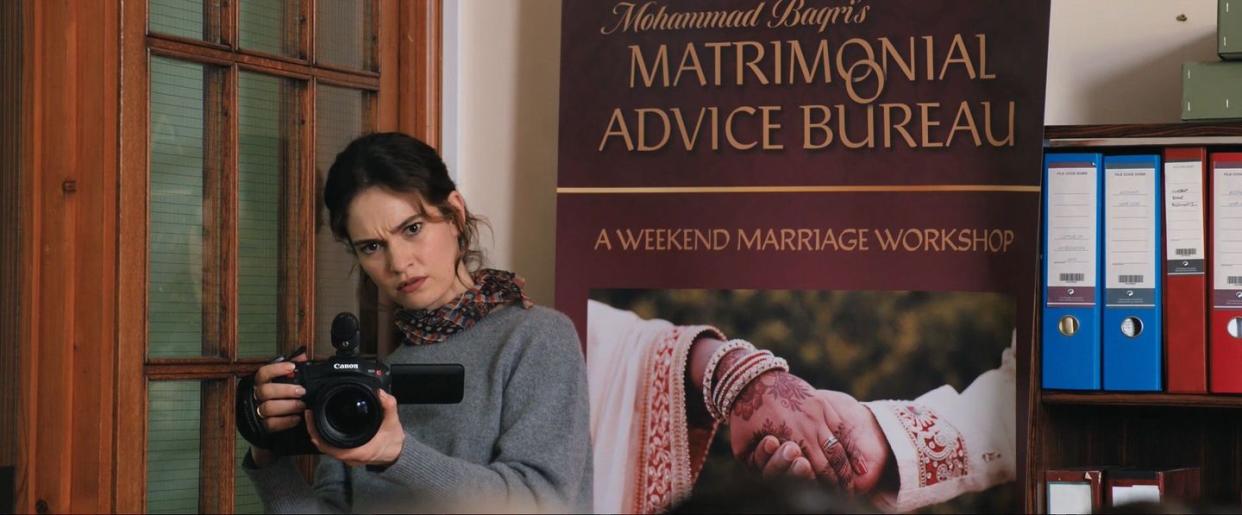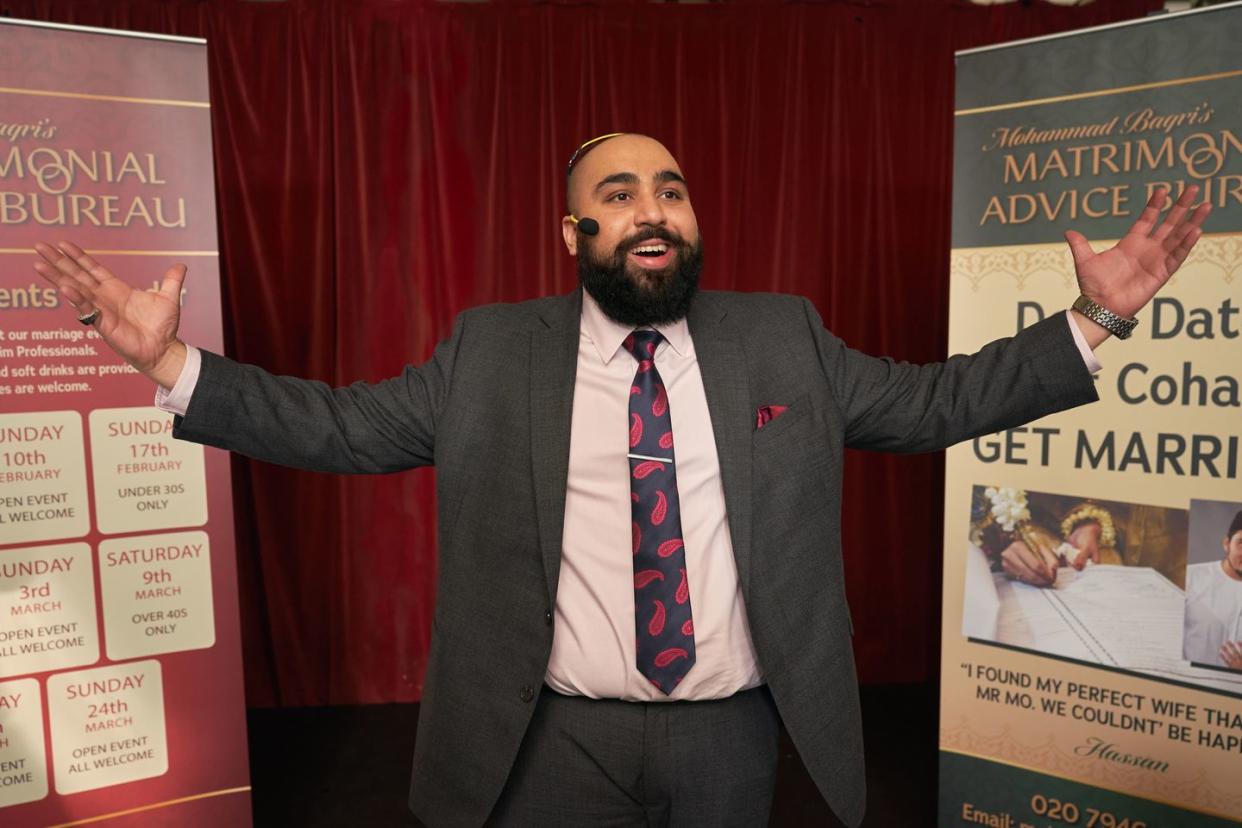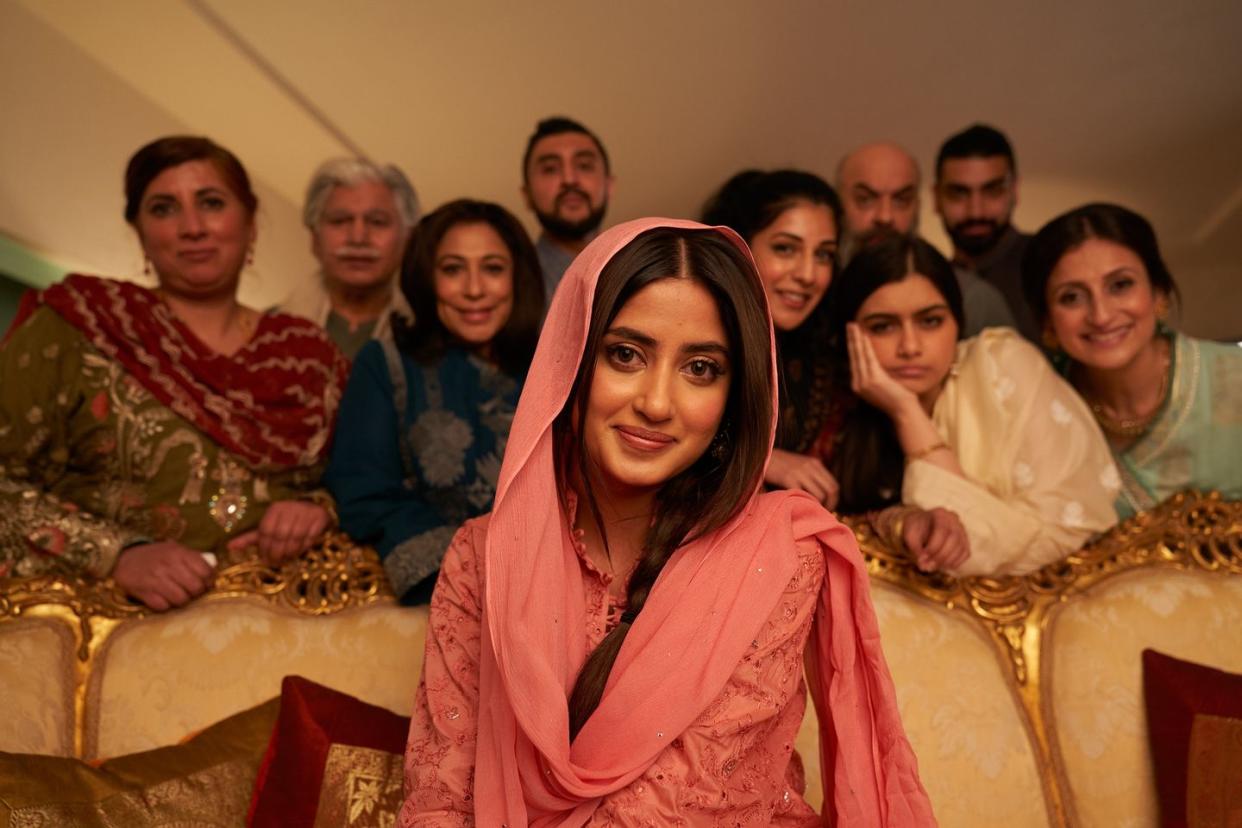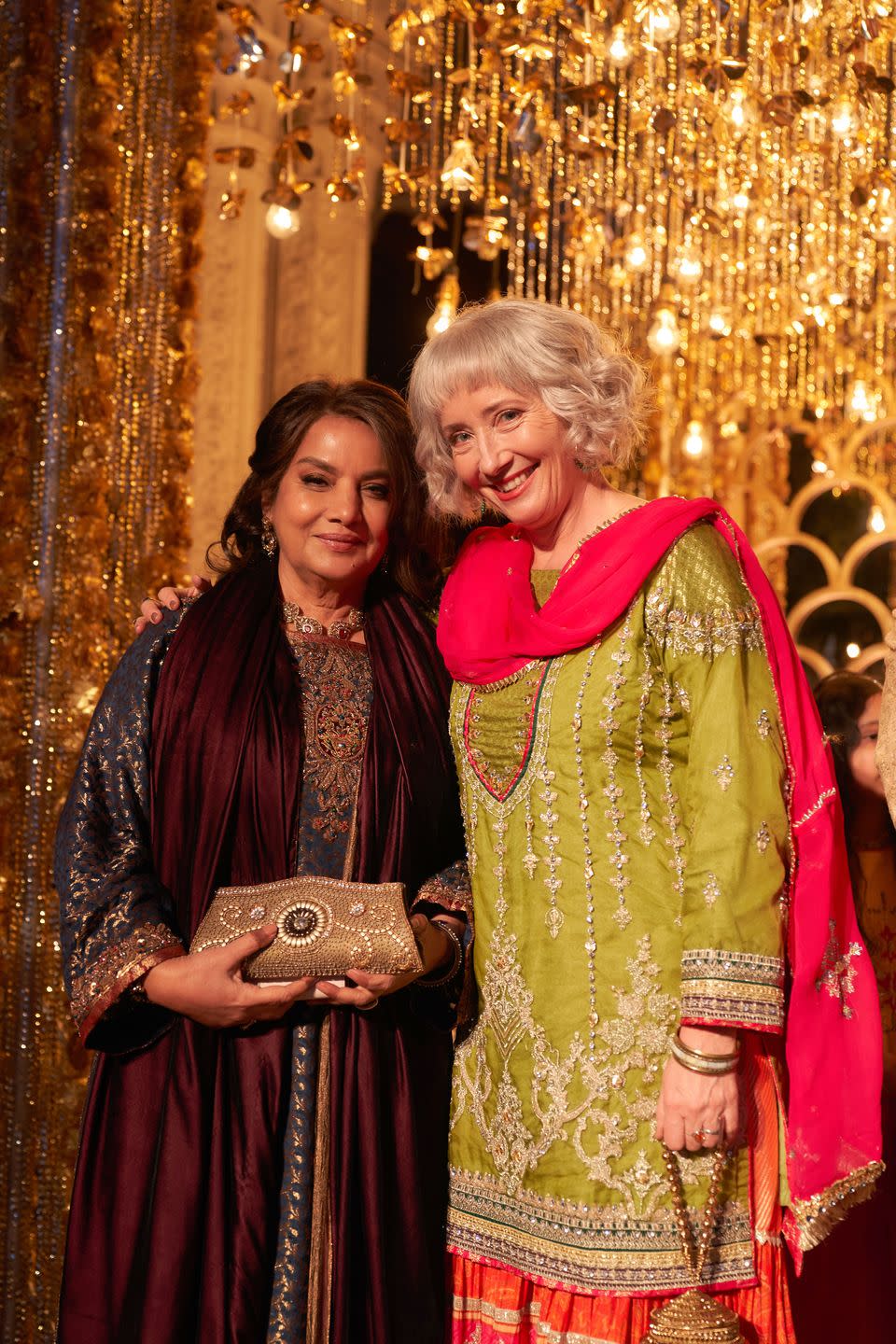Lily James's new movie fails with its representation

What's Love Got to Do with It? spoilers follow.
On the surface, What's Love Got to Do with It? is a classic British rom-com with a cross-cultural twist.
The movie stars Lily James as Zoe, a documentary filmmaker in need of a subject for her next project, and Shazad Latif as Kazim, her British Pakistani neighbour and close friend since childhood.
Kazim has decided that he wants to settle down and find a wife, enlisting his parents to help him secure an assisted, or arranged, marriage. Intrigued by this process of finding a partner, Zoe convinces Kazim to be the subject of her next documentary, following him from London to Lahore in his search for a wife.
But despite good intentions from writer and producer Jemima Khan to demystify assisted marriage and love in South Asian culture, plus a cast including acclaimed Bollywood actor Shabana Azmi and direction by Shekhar Kapur, the movie panders to Western audiences and rom-com tropes, failing to make any consistent comment on the very topics it seeks to address.

In one scene, Zoe and Kazim discuss his plans to find a wife. "What about love?" Zoe asks, a fair question from someone for whom assisted marriage is not a familiar concept. Kazim replies that you "grow to love the person you're with".
Written as a more worldly character than her bumblingly offensive mother, played by Emma Thompson, you'd expect Zoe to accept this answer – instead, she compares the situation to Stockholm Syndrome.
Zoe also pitches her documentary as "Love, Contractually" and describes Kazim's experience as "marrying a stranger, chosen by his parents", a statement that is both reductive and factually incorrect.
That's not to say that South Asian families don't put pressure on singles seeking a partner. Certain careers are prized over others, as well as castes, body types and skin colours – an issue reality show Indian Matchmaking made plain.
To counter this, the movie makes a subtly sharp point about colourism and the caste system while People Just Do Nothing's Asim Chaudhry questions Kazim and his parents about their bridal preferences.

What's Love... clearly sets out to show the colossal difference between forced and assisted marriages. Peppered with scenes of happy couples sharing their own stories, whether they were assisted or ‘love' marriages, it reinforces the message that assisted unions are not the cruel or baffling concept they are sometimes perceived to be.
Zoe's comments throughout the film are therefore conflicting. She repeatedly questions Kazim on his decision, referring to his wife-to-be as a "stranger" he doesn't know. Kazim's dialogue seems to serve as a tool to educate Western audiences on assisted marriage.
The script is at pains to point out how modern and progressive this kind of betrothal is actually, pointedly comparing divorce procedures across cultures. Yet while many might learn a thing or two, none of this is new information and South Asian viewers may well feel patronised.
It's perhaps no surprise that Zoe and Kazim end up together at the end of the movie after Kazim's short-lived marriage (with Sajal Aly's Maymouna) reaches an amicable end. It's what audiences have come to expect from the genre and was obvious from the beginning.
However there could have been a much more powerful statement by subverting so many of the stereotypes it plays into.
Take Maymouna, a shy, quiet girl in front of her family who turns into a riotous party girl as soon as she's tied the knot. Could she not have been a confident and unashamed young woman whose family supported her ambitions instead of having to hide them?

The problem could lie in Khan's outsider status. The writer-producer was married to retired cricketer and the then-future Prime Minister of Pakistan Imran Khan, living in Pakistan for nearly a decade.
Khan undeniably has first-hand experience of South Asian culture and it is obvious that she set out to represent this with love in what is her screenwriting debut, but her perspective can never be lived experience.
It's interesting that Zoe's doc ends up being dropped by her producers because they can't support her project having been made through a "white prism". Is this a tongue-in-cheek acknowledgement of Khan's own privilege, or a pre-emptive defence of this very critique? It's hard to say.
What's Love... isn't completely without merit. There are scenes many South Asians will laugh at, recognising their own family experiences represented on screen.

Khan also does an admirable job of tackling tricky topics like shame culture and mixed-race marriages – a storyline involving Kazim's sister Jamila is done particularly well. There are big Bollywood dance scenes, bright lehengas and interfering aunties, making this an entertaining watch, stylistically speaking.
But with the calibre of South Asian faces both on and behind the screen, What's Love Got to Do with It? had so much potential to smash stereotypes.
Instead, the movie plays into tired storylines about South Asian experiences and leaves the white lead as the saviour, right all along that assisted marriages are a wild idea. Sadly there's not a lot to love here.
What's Love Got to Do with It? is in cinemas now.
You Might Also Like
